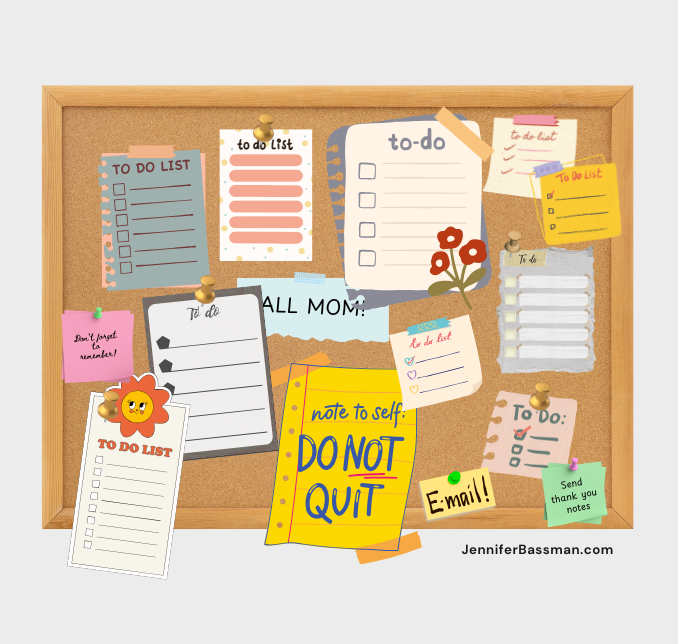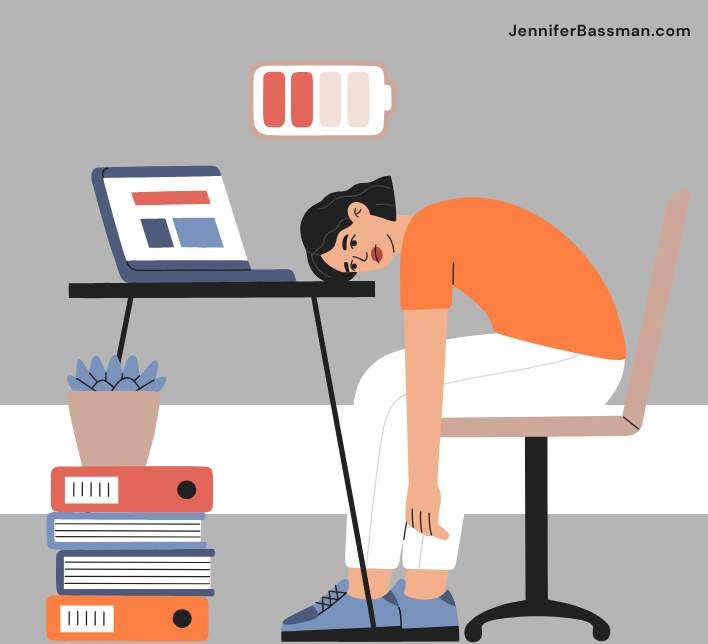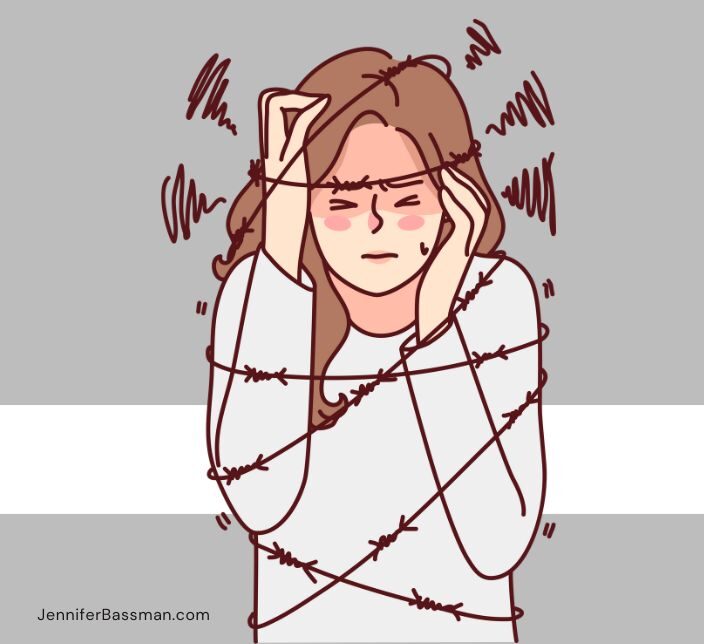I hate asking for help from others.
It’s now 350 degrees in Dallas, Texas day in and day out. I honestly don’t know why I live here because I hate the heat.
I feel like I can’t go anywhere or do anything without sweating, I don’t plan on having a good hair day again until mid-October, and everything just seems harder because it’s so freakin’ hot.
It’s this time of year when I really have to think twice about what I want to do and when I want to do it. A great example: grocery shopping. It would be ideal to do that earlier in the day when I don’t have to hurry to get everything into my car and hustle home to get things into the freezer before they melt. (Yes, it is always that hot and the heat melts things that fast. Like I said, this place is ridiculous.)
Stick with me: this story has a point!
Since I’m not a fan of grocery shopping (either,) I will do a lot at once so I don’t have to return so soon. So the haul from the checkout counter to my car can take some effort. It usually involves two carts full of groceries that aren’t packed particularly well in their bags. Things fall out, items shift…
After I pay, comes the inevitable question: would you like some help out to your car?
Bless the heart of anyone who has to ask me this question. I am sure they are met with a very confusing facial expression that probably really looks like I need to use the restroom.
What’s happening in those moments between the question and answer, is that I am running through my checklist to figure out if help is ideal:
- Is it over 90 degrees?
- Is there more than one cart to schlep outside?
- How busy is the store and are there are other people that will need help to their car?
- Do they seem capable of making to my car without dumping the cart of groceries in the parking lot?
- And, finally, do they really seem to give a sh!t?
I Know I’ve Got Problems
I wouldn’t blame you if read that and wondered “what the heck is wrong with her?”
Look, I know that I am a giver and a terrible receiver. I can probably trace this problem back in my family lineage to the cave man era. My great-great-great-great-great-great-great-great (times a 1000) grandmother probably invented unrealistic expectations and had the first thought of “No one can do this as well as I can and I don’t want to hold your hand to show you. Again.”
As I have worked to unravel my issues surrounding asking for and accepting help, I realized that becoming open to help and seeing help as a positive, rather than a negative, will only make me a stronger person.
And, learning to delegate when I am overwhelmed has become a superpower that I am proud of.
You Aren’t Alone – A Looooooooot Of People Hate Asking For Help
A common theme of people working through burnout recovery is learning to ask for help. I think this is one of the more important parts of recovery – and burnout prevention. Knowing when you need help and being vulnerable enough to ask for it.
Many people who are burned out become tunnel-visioned and don’t see other’s productivity as meaningful. There is a burden that has loaded on their shoulders that they alone feel they should carry, or no one else is capable of doing so.
If I had to call a single group out on this mindset: business owners.
In the spirit of transparency, this mindset is what made me unfriendly toward employees. It made me a disaster as a manager and fried me to a crisp. But now I see more and more business owners with the same mindset. It also doesn’t help the employee pool is limited these days and finding qualified help feels like an impossible task. (If you are an employee reading this, I’m not talking about you. I’m not. I swear!)
However, I have also had my fair share of employees that don’t like asking for help because they fear it makes them look weak, stupid, or not capable of doing their job. This is when mistakes get made and the path to burnout opens up.
Basically, we all have something to learn here.
You And I Were Born Like This
There are a lot of psychological reasons you and I hate asking for and accepting help. One that really stands out is that it was what was modeled for us as children and drilled into us as Parenting Wisdom. Maybe you grew up with a mother that refused help when it was offered. Or, your father wanted to figure things out for himself.
Too many of us grew up believing that the less we ask for, the better. You don’t want to be a burden or seem weak. So, it’s not a surprise that we grew into adults who have conflicted feelings surrounding help.
You may also have a history of not getting the help that you needed, so it became difficult for you to depend on other people. You don’t trust that someone will show up, put in the same amount of effort, or produce the same quality of work you do.
Whatever the reasoning behind not wanting to ask for help or delegating work, it’s time to look at those issues and confront them.
Why You Need To Suck It Up And Start Asking For Help
There is a time and place to be independent, self-sufficient. However, it’s not healthy for you to go through life avoiding help – asking for or accepting it.
When you allow someone to help, you feel closer to them and they feel closer to you. It deepens your connection and creates a stronger mutual support system.
If you aren’t convinced that vulnerability is something you are capable of, then: recognize other people have better ideas, create a better product, or are better than you at something. You want to get ahead, be successful? Some things are just better left to others to do.
No one was every intended to do all of the things and be all of the things. That is just bad societal pressure you have allowed yourself to buy into and it is holding you back. It is also stressing you out.
I Have Hurt My Own Feelings Writing This Email
These emails aren’t always for you. Sometimes I need to take my own advice. Also, it’s time to grocery shop later this week…
How To Be Open To Help, See It As A Positive?
I could give you a list of the 100+ things I tried, but I am going to give you a list of six things that have been effective for myself and some of my coaching clients.
- Shift Your Perspective: You can shift from seeing help as a negative if you focus less on what it’s taking away from you, and more of what it is creating or allowing you to do instead.
- Know Your Worth: The feeling of not being good enough often fuels you to try and do it all on your own.
When I’m not comfortable, I get defensive. Or, when I am around people who make me feel like I don’t know what I’m doing, I often try to show off. Others have described feeling paralyzed by shame and powerlessness, then feeling unworthy of connection or suspicious of other people’s motives.
- Know What You Believe: When you aren’t clear on your priorities or what is most important, you may not know what you need help with. So, it’s possible, that when someone offers to help you feel overwhelmed, unsure, or too much pressure to make a decision. The more you reinforce who you are, the easier it will be to trust yourself when it comes to making decisions.
- Know Your Strengths: Focus on what you are good at and stop trying to fix your weaknesses. You can’t be great at everything and it’s not even worth trying. You will excel only by developing and using your strengths.
- Know When To Ask For Help: Asking for help is not a sign of weakness. In order to be successful, you need to learn how to take risks. Recognize when you are better off working with a partner or a team to achieve your goals and – GASP! – acknowledge that other people may have better ideas than you.
- Listen: Work on receiving feedback. It can often be taken as criticism, when that was not the tone or intent. Sure, some people are terrible at giving feedback and you may have to parse out the intended message. But, take it in stride and not as an insult. Don’t allow negative feedback to reinforce your insecurities, or for positive feedback to balloon your ego or give you a reason to stop learning. Listening means we are open to other perspectives.






